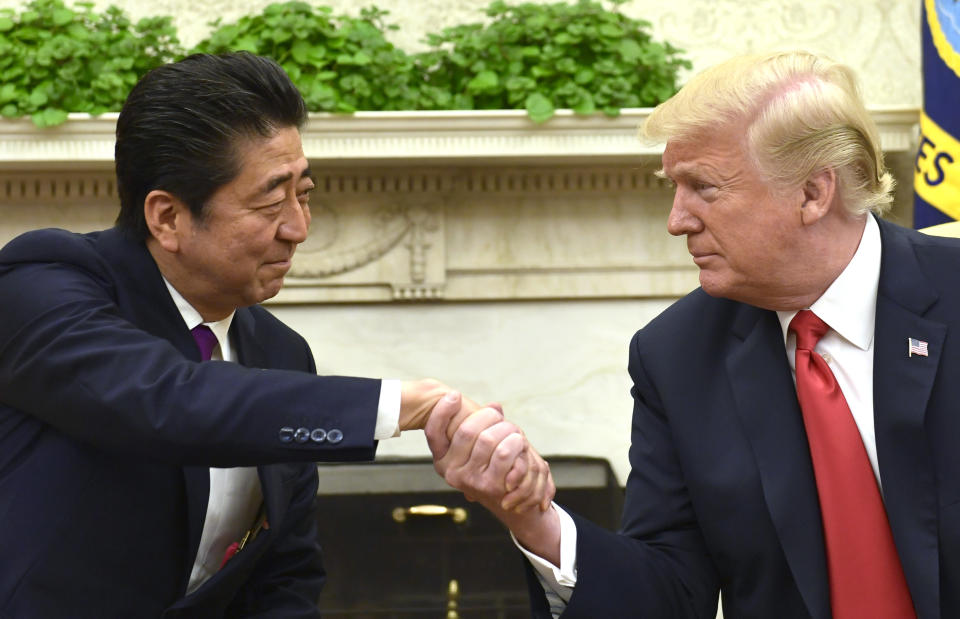G7 Meeting — What you need to know in markets on Friday
Summer doesn’t officially begin in the Northern Hemisphere for another two weeks but Friday will certainly feel like the unofficial beginning of a summer lull in markets.
On the calendar on Friday, the economic calendar will feature only the final reading on wholesale inventories for April while the most notable companies reporting earnings will be WageWorks (WAGE) and Liberty Tax (TAX).
After a strong start to June, stocks took a slight step back on Thursday as the major indexes logged a mixed close with the Dow gaining ground while the S&P 500 and Nasdaq finished in red numbers.
With little in the way of catalysts out of the corporate or economic worlds on Friday, expect markets to be attuned to any news on trade coming out of the G7 meeting in Canada on Friday.
This meeting comes as the Trump administration last week imposed tariffs on imports from Canada, Mexico, and the EU.

CFO optimism remains high
Chief financial officers at companies across the country are still pretty positive on the U.S. economic outlook.
According to UBS’ latest survey of 500 CFOs from U.S. corporates, a majority of respondents expect that revenue and profit margins will grow in the year ahead.
“61% of executives expect revenue growth to accelerate in the next 12m and 64% see margins expanding, though the overall proportion anticipating an acceleration has declined slightly since the last survey,” the firm wrote in its report published Thursday.
“Continued confidence is driven by improved demand and pricing (70% and 66% positive responses), with limited concern around cost headwinds.”
What we found notable in the report, however, is that a fairly small percentage of CFOs thought that labor or commodities prices would be negatives in the year ahead. “Only 14% and 11% expect labor costs and raw materials, respectively, to have a negative impact; and overall concerns around tariffs were minimal,” UBS writes.
Given the rise in commodity prices over the last year and the persistent complaint about companies unable to find quality labor, it would seem that both of these factors are set up to be more broadly-felt headwinds for business in the months and years ago.
Though with only 1 in 8 businesses seeing labor costs as a negative in the year ahead, either wages are not likely to accelerate — thus tamping down some inflationary pressures in the economy — or these business leaders will be wrong about how much it’s going to cost to staff up.
And with the economy still adding in excess of 200,000 jobs per month, it would appear that staffing up still remains, to some extent, the plan for many businesses.
—
Myles Udland is a writer at Yahoo Finance. Follow him on Twitter @MylesUdland


